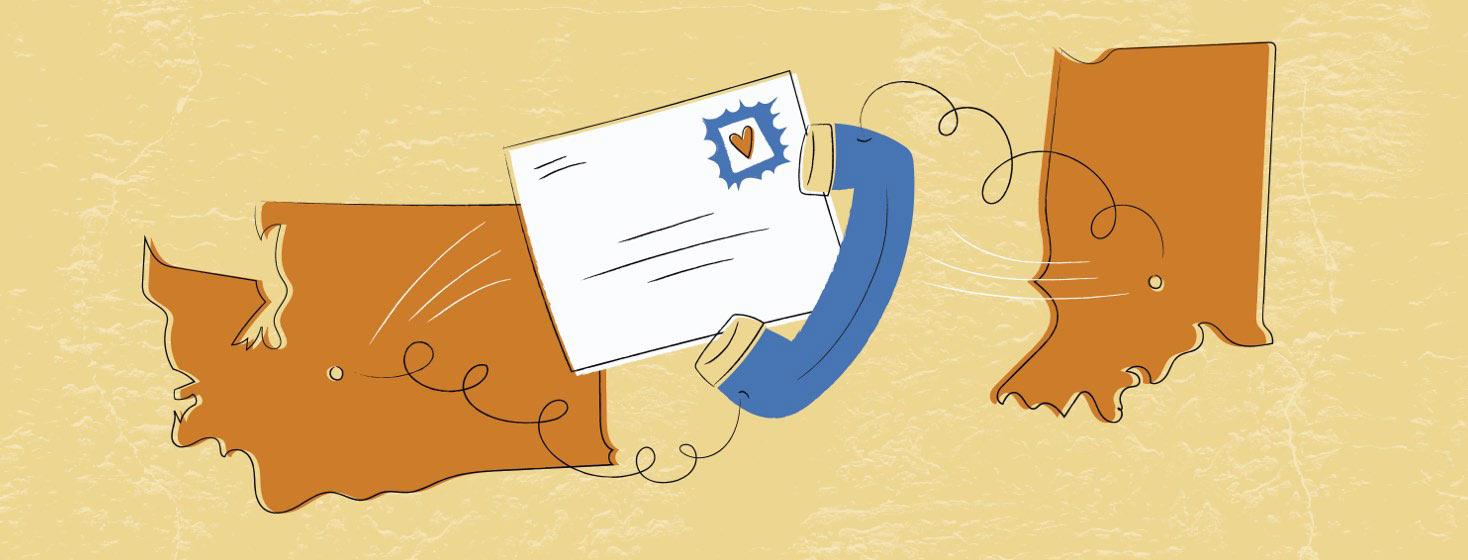Ways to Help as a Long-Distance Caregiver
Before my mom moved to Utah to live with me and my family last year, she was living on her own in California. Being a long-distance caregiver is a strange role with a lot of reward and value. There are also many simple but important things to help with.
Starting out as a long-distance Alzheimer's caregiver
The first few years after we started noticing signs of dementia weren't very different. We visited Mom once or twice a year and she came to visit us too. She played with her grandkids, kept up with all her activities, and paid her bills on time. We talked on the phone but I had a new baby and in the fog of sleeplessness and always having a newborn in my arms, it was tricky for me to regularly initiate calling her.
After a while, I realized that Mom never called me anymore. And this was not just sometimes. I checked the call log on my phone and the last time she had called me was beyond the call log history. At first, I thought it was just because she was busy or because I was falling behind on calling her back. I took it a bit personally. But I finally realized that with her memory problems, she probably didn't remember that we had not talked in a while.
Dementia is a zinger.
Call your loved one regularly
I started calling Mom regularly. Starting in the COVID-19 pandemic, I went from calling her about once a week to calling her at least once every day. Even though I'm a millennial and prefer texting, text was not helpful in communicating with Mom - she would just send one-word responses. I forced myself to pick up the phone.
It is such a simple thing but regular calls make a huge difference both in cheering up your loved one and also helping you assess how the disease might be progressing.
Help with bills and finances
Even from a distance, this is surprisingly easy now with banking and bill-paying accessible on the Internet. You can also set alerts to notify you of suspicious charges or if large amounts are withdrawn over a certain amount.
Some banks might require you and your loved one to sign paperwork in person before you can access accounts so plan your in-person visits to accommodate these.
Evaluate your loved one at each visit
You have the perspective of not seeing them every day. You might pick up on things that have gradually changed and avoided notice by regular, local caregivers. The Alzheimer’s Association has good checklists of what to look for when you visit.1
Arrange for outside help
It's a lot of work researching, calling, and interviewing care providers or part-time help. This is a great thing for long-distance caregivers to help with.
Send mail and care packages
My mom, like most people, loves receiving mail. As a long-distance caregiver, I wasn't able to make every holiday or special occasion, so I made a point to be thorough in sending mail or flowers. This doesn't have to be expensive. A simple card goes a long way.
Don't forget those nearby who are helping. I tried to regularly thank all her local caregivers and neighbors, especially because my mom might have forgotten to do so.
Help schedule doctor appointments
Loved ones with dementia usually need to bring a trustworthy friend or family member to appointments so they do not forget any important information. Long-distance caregivers can coordinate appointments and who will accompany them.
Communicate with local caregivers
Keeping positive relationships can be one of the most challenging parts of being a long-distance caregiver but is so important. With only my mom to share about her day (a somewhat unreliable witness!) I sometimes had no idea what was happening in my mom's everyday life or if she was being taken care of.
Neighbors, nearby friends, and family were all a lifeline in helping me know, for example, if Mom actually was taking her medications or just telling me she was.
Some of those people can be difficult to work with but it's best to try not to burn any bridges. Good rapport with friends and family near your loved one allows you a strong network and a way to get accurate reports of your loved one.
Be prepared for an emergency
Make sure you have the phone number of a trusted neighbor in case the other caregivers are out of town. We made sure that a family member had an extra set of keys and alarm codes so someone could always check on Mom.
Know your limits as a long-distance caregiver
Local caregivers are likely exhausted and of course, you want to help from afar. But know that it can be very time-consuming in a different way trying to stay updated with your loved one, hearing doctor appointment reports, and coordinating care from a distance.
Pick a few things you can help with but don't overburden yourself. You have an important role and it will look different from local caregivers.
It wasn't easy caring for Mom long-distance, but I'm glad I could help her live on her own in her own home for as long as possible, even from states away.
Have you been a long-distance Alzheimer's caregiver? What would you add to the list? Tell us about your experience in the comments below, or share your story with the community.

Join the conversation